Announcements
Latest news, job postings and upcoming events.
Global participation in MIT RAISE’s free K-12 program more than doubles in its second year.
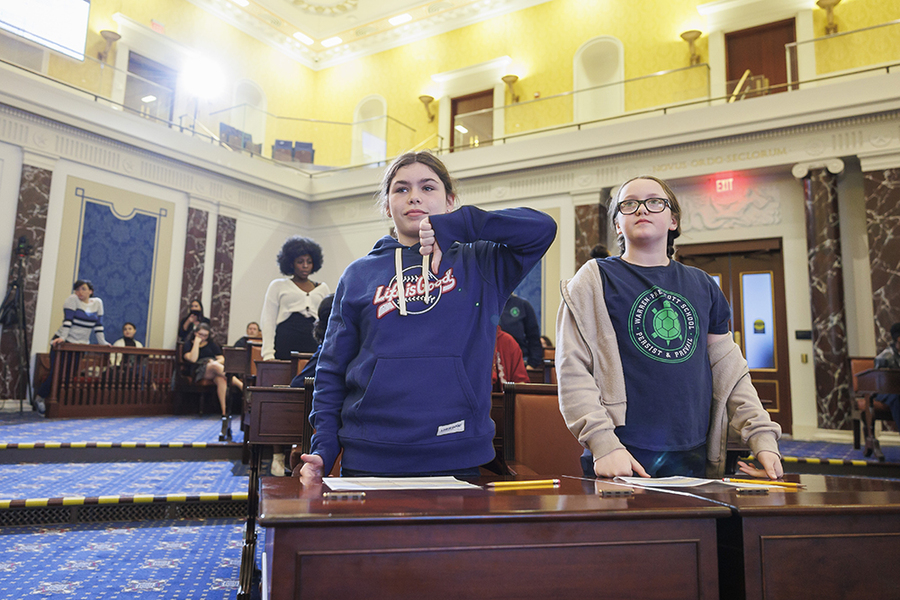
While schools debate what to teach students about powerful new A.I. tools, tech giants, universities and nonprofits are intervening with free lessons.
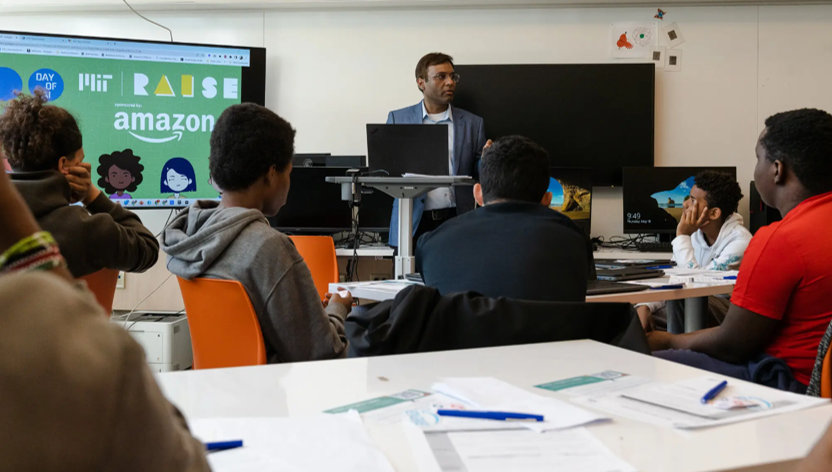
Day of AI is an initiative MIT RAISE (Responsible AI for Social Empowerment and Education) developed in collaboration with i2Learning.
Several thousand students worldwide participated in the second annual “Day of AI” on May 18, yet another sign of artificial intelligence’s growing significance to schools.

"Using resources developed by MIT, we encourage all schools to engage students in activities exploring how artificial intelligence has already impacted their lives and the broader issues it presents to our society." - David C. Banks, Chancellor of New York City Public Schools

RAISE team set to present research findings at EDULEARN23
This paper presents the computational action process — a set of curricula and toolkit for K-12 students — and the results of a human-subject research study with 101 U.S. and international students ages 11 to 18.

AI literacy is something that every student needs exposure to—not just those who are planning on a career in computer science, experts argue.

Randi Williams, a doctoral student at MIT, joins Unpacking Education to talk about the Day of AI, which is an opportunity for K–12 teachers and students to explore the topic of artificial intelligence (AI).
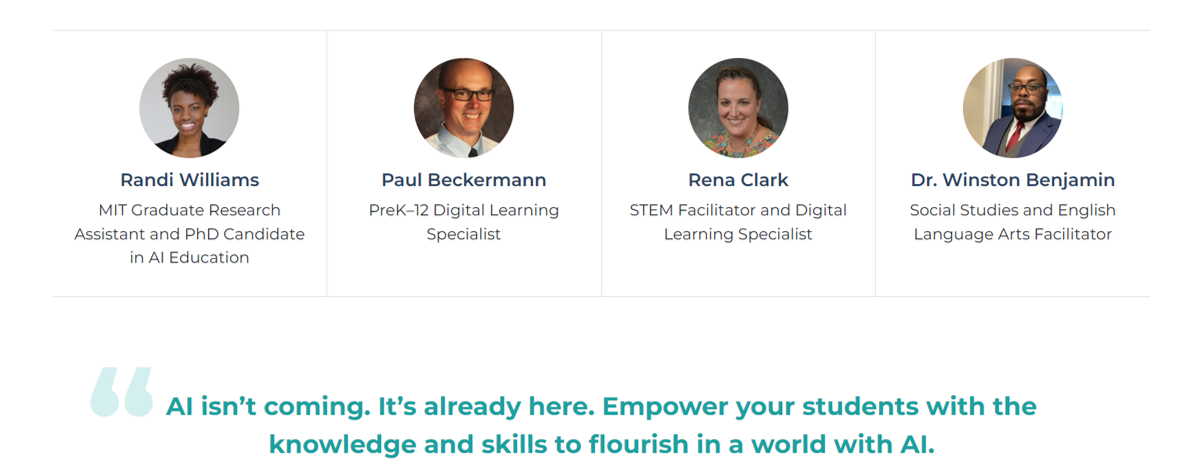
MIT RAISE adds ChatGPT curriculum for all ages to Day of AI.
.png)
Cambridge provides teenagers with their first work experience and to learn coding skills for Data Activism.
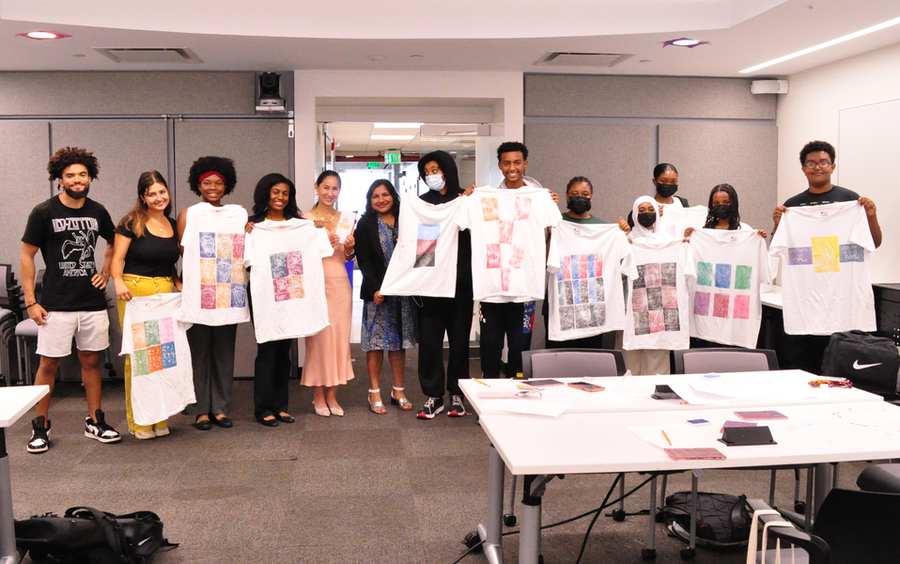
MIT Lincoln Laboratory organizes transformational summer program for youths.
To view the recording, please click above.

Workforce needs and educational outcomes misaligned in the U.S.
MIT lecturer and Open Learning researcher William B. Bonvillian discusses the serious lags in workforce education and how some education institutions and statewide initiatives are addressing them. To view the recording, please click above.

Social robotics pioneer Prof. Cynthia Breazeal discusses artificial intelligence in our lives, digital citizenship, and AI education for all.

Technovation founder and CEO Tara Chklovski makes case for girls' education as sustainability goal.
The March MIT RAISE Seminar Series hosted Tara Chklovski to present from her experience over the last 15 years as founder and CEO of Technovation. To view the recording, please click above.

ISTE hosts webinar with MIT RAISE directors about Day of AI.
The International Society for Technology in Education (ISTE) hosted a webinar with MIT RAISE co-directors Cynthia Breazeal and Eric Klopfer to talk about the upcoming Day of AI. To view the recording, please click above.
International education technology expert Alan November chats with MIT RAISE researchers over webinar.

MIT researchers present developments in the Responsible AI for Computational Action (RAICA) program, part of the MIT RAISE initiative.

MLK Visiting Professor S. Craig Watkins explains why schools and society should make AI literacy a top priority.

Monthly RAISE Seminar Series launches with talk by AI education pioneer Professor David Touretzky (CMU).

'Social robots are designed to engage with people more as a collaborative partner.' says Breazeal.

Artificial intelligence is top-of-mind as Governor Baker, President Reif encourage students to “see yourself in STEM.”
The fourth annual Massachusetts STEM Week kicked off on Monday, Oct. 18 at the MIT Media Lab. Organized by the Massachusetts Executive Office of Education and the STEM Advisory Council, Mass STEM Week is a statewide effort to boost awareness, interest, and access in STEM education and career opportunities for learners of all ages and backgrounds.
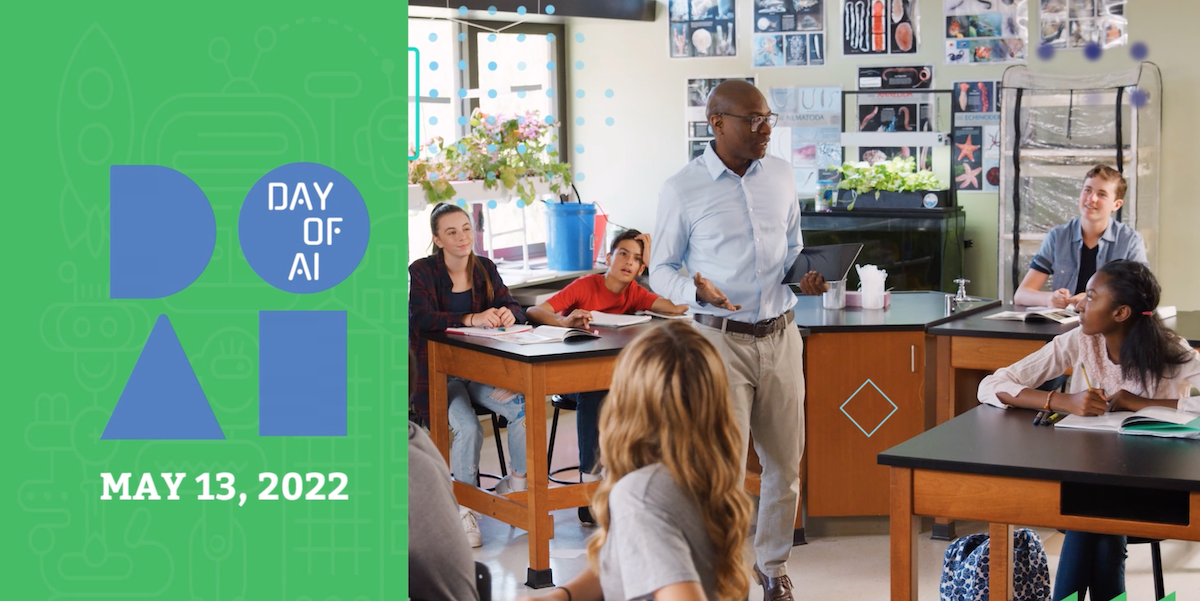
Over 1,000 budding coders around the world compete with apps designed for social impact.
Following a year of disruption caused by the Covid-19 pandemic, the App Inventor team hosted its second annual virtual Appathon for Good this summer, a marathon-like event during which over 1,000 coders used the App Inventor platform to create apps aimed at helping people in communities around the world. Participants in this year’s Appathon ranged in age from 4 to 82 and hailed from 86 countries
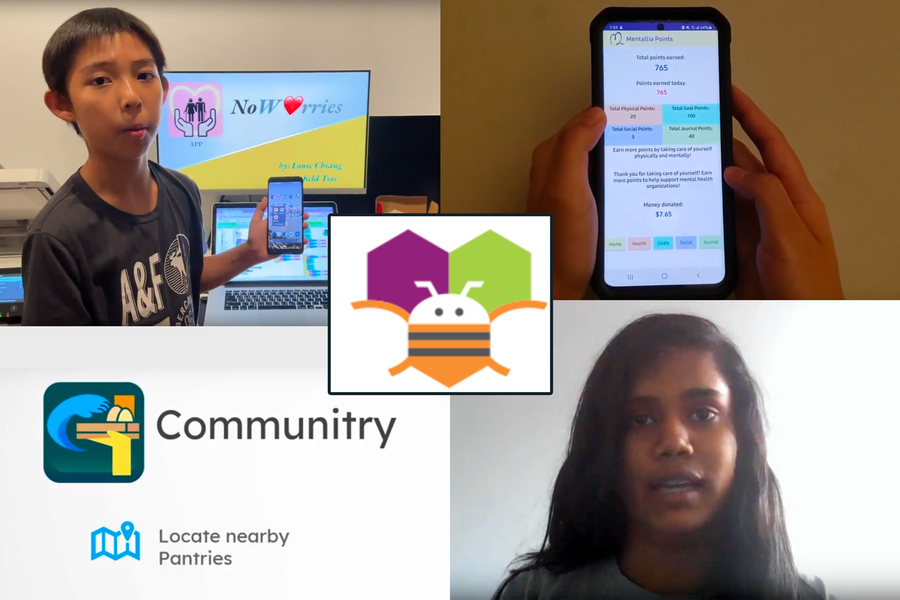
MIT App Inventor among the 2021 EdTech Top 40. Every year, the EdTech Top 40 analyzes the digital tools accessed by the most students and educators across the United States via the internet.
The EdTech Top 40 represents the edtech products accessed by the most students and educators across the United States via the internet between September 1, 2020 and May 31, 2021. Findings are based on 2m+ students, 250k+ educators, 8600+ edtech products, 2800+ organizations.
Cynthia Breazeal delivers keynote at the 20th annual AAMAS conference
Prof. Breazeal delivers a keynote on her research on the occasion of winning the 2021 Influential Paper Award for her work Emotion and Sociable Humanoid Robots in International Journal of Human-Computer Studies, Vol. 59, Issues 1-2, pp. 119-155, July 2003.
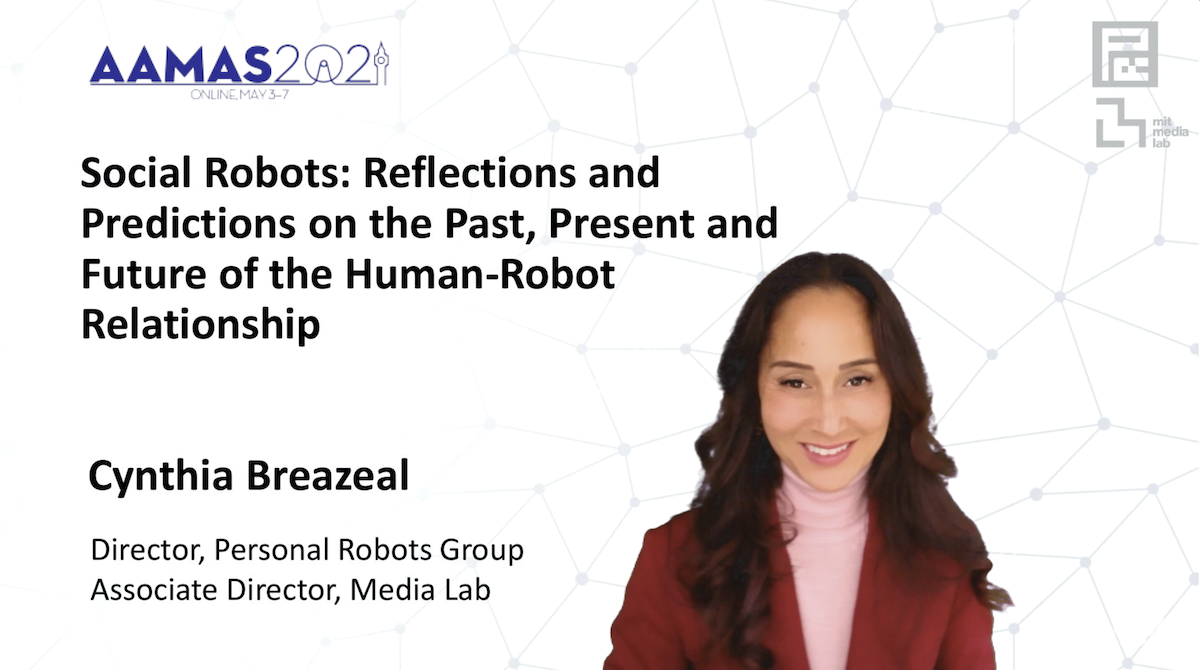
Read More
The MIT CS+AI learning community gathers for the first time.
The MIT CS+AI Literacy Learning Community is a group of educators, researchers, and designers working together to create an open community around the AI literacy work being done at MIT. Teachers and educators have the opportunity to learn about and playtest various AI literacy materials alongside researchers.
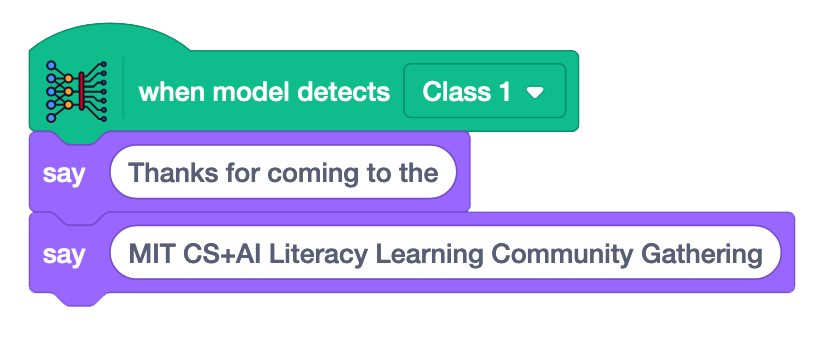
Read More
Report details impact since project launch in 2016.
The CoolThink@JC pilot project was introduced in 32 local primary schools of different types citywide from 2016/17 academic year onwards and has been supported by extensive teacher professional development initiatives, workshops and parent education activities. A standard set of learning materials has been developed for pupils in Primary 4 to 6 grades, and the schools involved have been given support where necessary in adding the relevant hardware and infrastructure. Among the notable findings to date, more than 90% of school principals citywide have expressed their support for coding education and would like to see it strengthened; 80% of teachers trained under the project have found they teach CoolThink in a different, more student-centric way; and 76% say they would recommend it to others. Perhaps most importantly of all, 89% of the student projects have demonstrated innovative capability, while CoolThink students have shown significant growth in problem-solving skills compared with students not participating in the project.
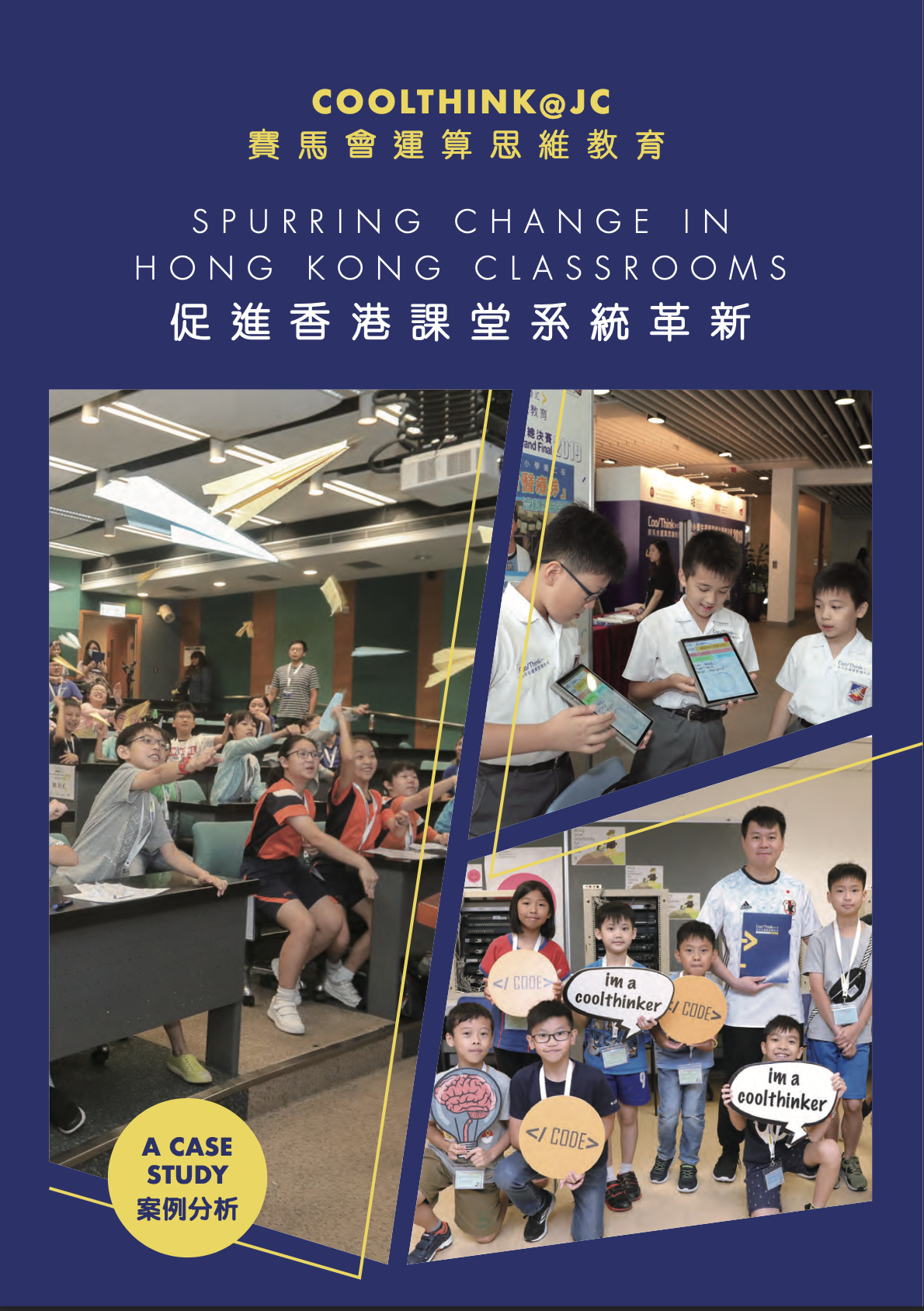
Read Report
Cynthia Breazeal delivers keynote at Mass STEM Week 2020.
Mass STEM Week is a statewide effort to boost the interest, awareness and ability for all learners to envision themselves in STEM education and employment opportunities, and compliment the formal instruction happening in the Commonwealth beyond STEM week.
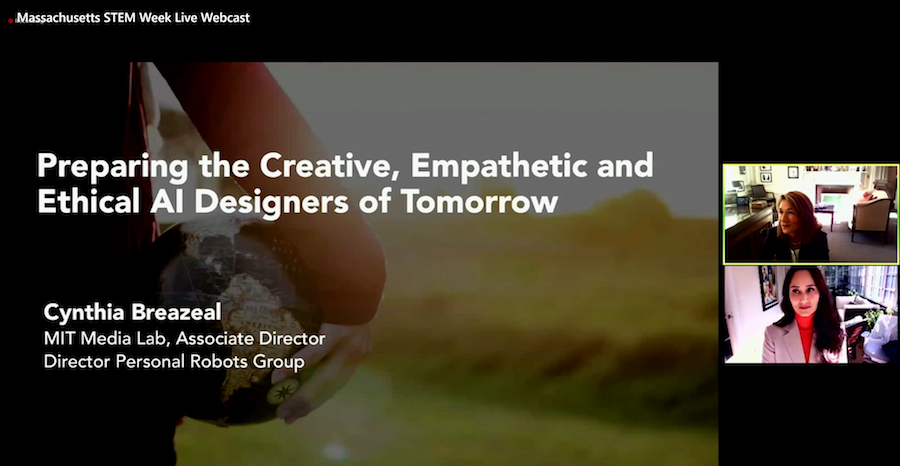

Groups such as AI4K12 and the MIT Media Lab have begun to study the issue and develop AI learning frameworks for K-12 students. Image by Kevin Craft.
The Massachusetts Institute of Technology Media Lab has created AI + Ethics Curriculum for Middle School, a program focused on developing open-source curricula through lessons and activities. The program has been piloted at Montour Public Schools near Pittsburgh, PA, a school district that also offers a three-day AI course for elementary students that also touches on ethics issues.
Read More
Interactive lessons to help kids learn and design with data privacy in mind
Researchers from MIT Media Lab share new data privacy and design activities, and at-home tech and AI debate guides for families that have been developed and piloted in the Boston area with the Girl Scouts of Eastern Massachusetts. They have developed learning videos for students to learn about data privacy and design in AI.
Read More
MIT Launches AI Education Website
Introducing Innovation Learning and Education in the Era of #AI: a hub of learning tools and resources to help K-12 kids learn about artificial intelligence—including ethical design and responsible use. https://raise.mit.edu. Led by Cynthia Breazeal, the website is a collaboration between MIT Media Lab, MIT Schwarzman College of Computing, and MIT Open Learning Initiative, highlighting diverse work by faculty, staff, and students across the MIT community at the intersection of AI, learning, and education.
Read More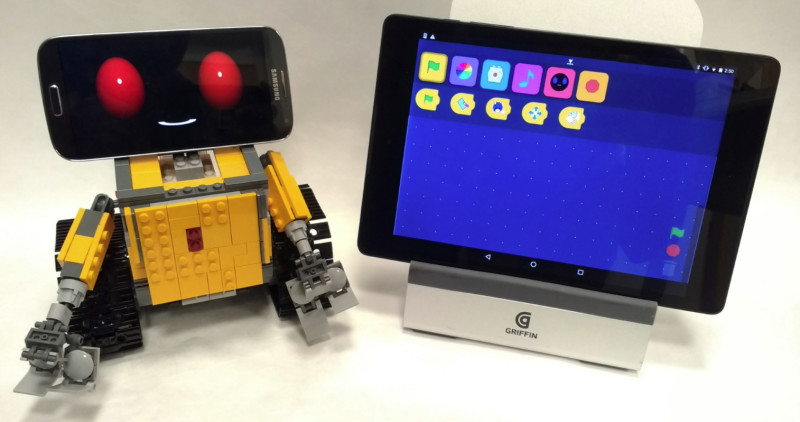
PopBots open AI to the youngest learners
From Siri to gaming, artificial intelligence is all around us. Ben Hall explores an innovative project run by MIT that makes this technology accessible to preschoolers.
Read More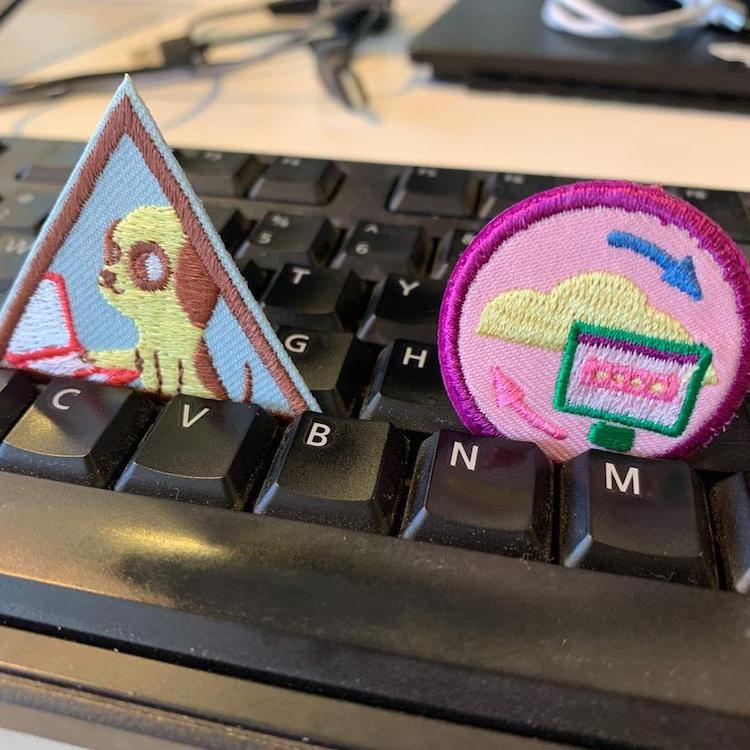
Cybersecurity Badge Day 2020
With the Girl Scouts of Eastern Massachusetts and Edward M. Kennedy Institute, the Media Lab’s Personal Robots group directed by Cynthia Breazeal collaborated to gather over 60 Girl Scouts and their parents for Cybersecurity Badge Day. The Girl Scouts participated in workshops and then convened to vote on a data privacy draft bill in a full-scale replica of the US Senate Chamber.
Read More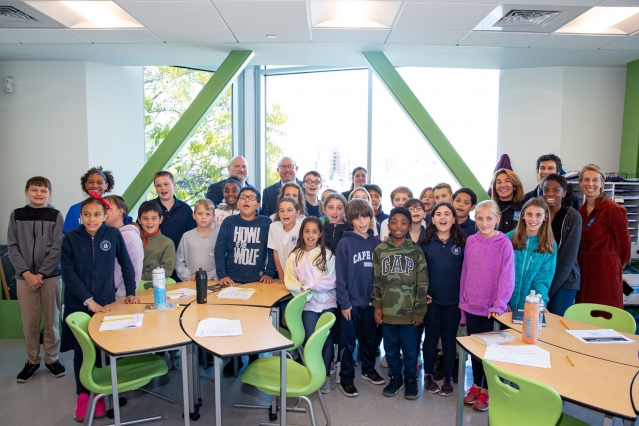
Bringing artificial intelligence and MIT to middle school classrooms
During Mass STEM Week in October, middle schools across the commonwealth replaced their regular curriculum with an immersive week of hands-on learning led by a team including Cynthia Breazeal, associate professor of media arts and sciences at MIT; Randi Williams ’18, graduate research assistant in the Personal Robots Group at the MIT Media Lab; and the nonprofit organization i2 Learning.
Read More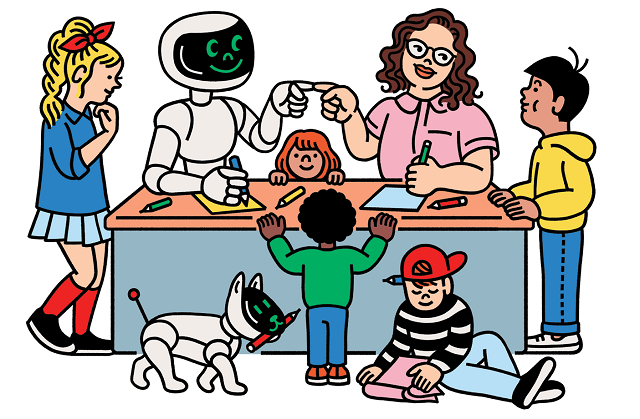
Play this bingo game with your kids to teach them about AI
Designed at MIT and tested by kids ages 9 through 14, it builds off research that shows how exposing kids to technology fosters their interest in STEM.
Read More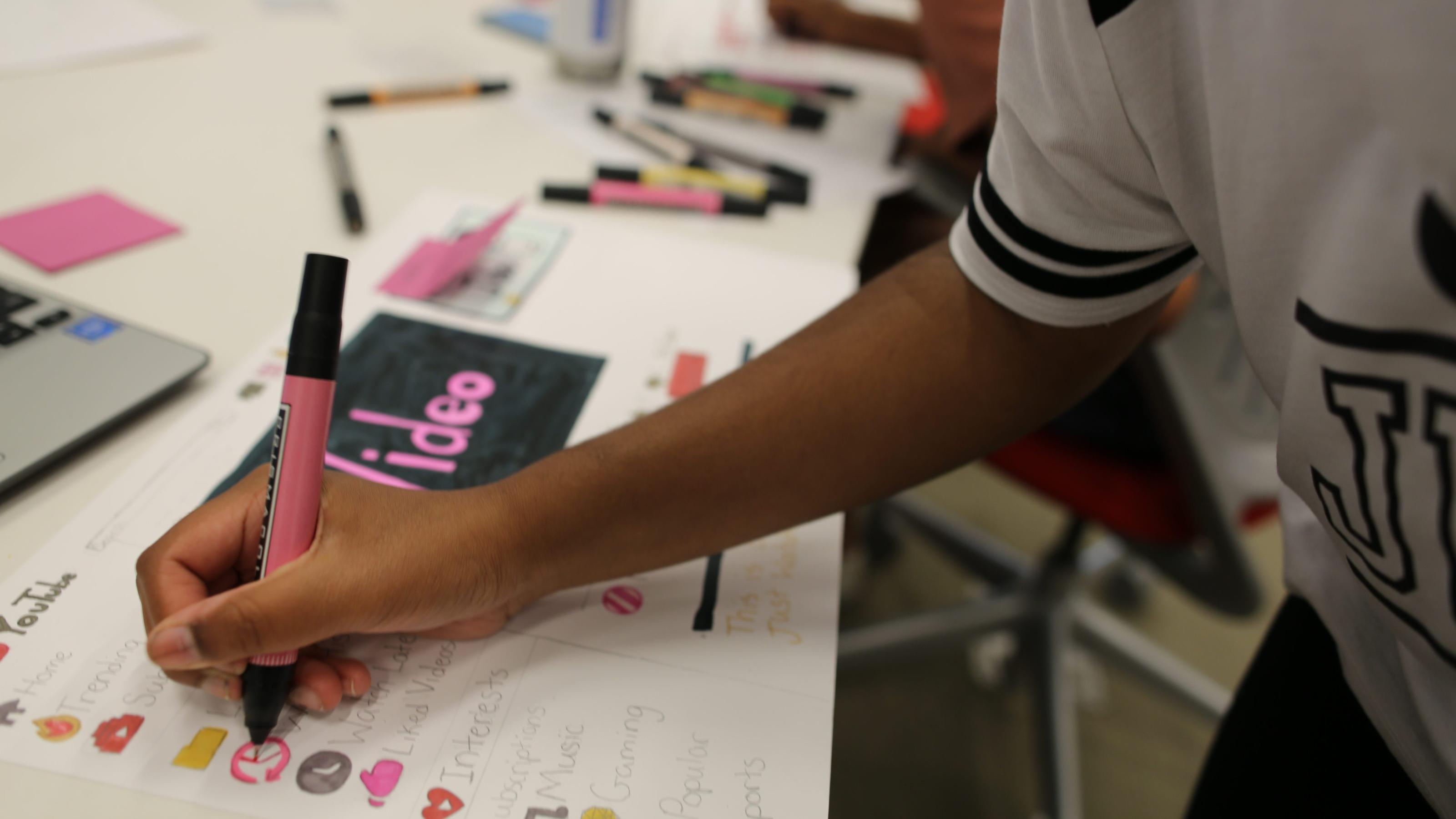
MIT developed a course to teach tweens about the ethics of AI
Payne created an open source, middle-school AI ethics curriculum to make kids aware of how AI systems mediate their everyday lives, from YouTube and Amazon’s Alexa to Google search and social media. By starting early, she hopes the kids will become more conscious of how AI is designed and how it can manipulate them. These lessons also help prepare them for the jobs of the future, and potentially become AI designers rather than just consumers.
Read More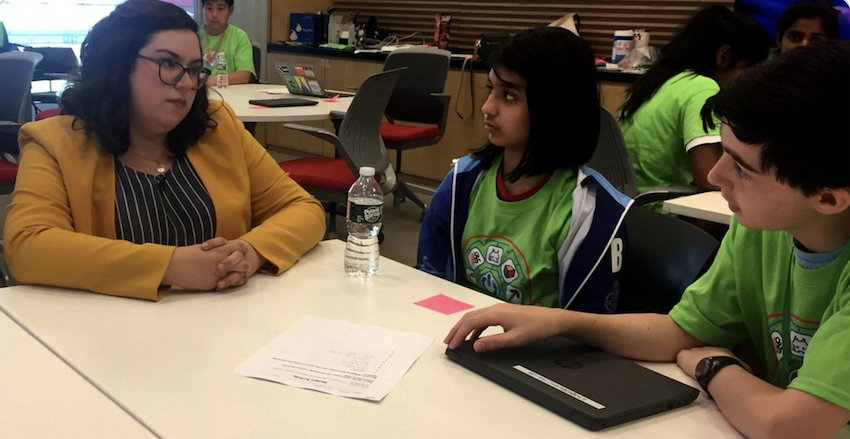
Teaching Kids the Ethics of Artificial Intelligence
Research suggests kids growing up on Alexa and Google Home think that these devices are smarter than them. But a new kind of summer camp wants kids to know that artificial intelligence (AI) is far from
perfect.
Welcome to AI Ethics camp.
In a classroom on the second floor of the Massachusetts Institute of Technology’s Media Lab, two dozen middle school-aged kids wearing neon green t-shirts sat in clusters around
tables. Standing at the front of the room was MIT researcher Blakeley H. Payne, who’s devoted her graduate studies in the Media Lab to the ethics of artificial intelligence.
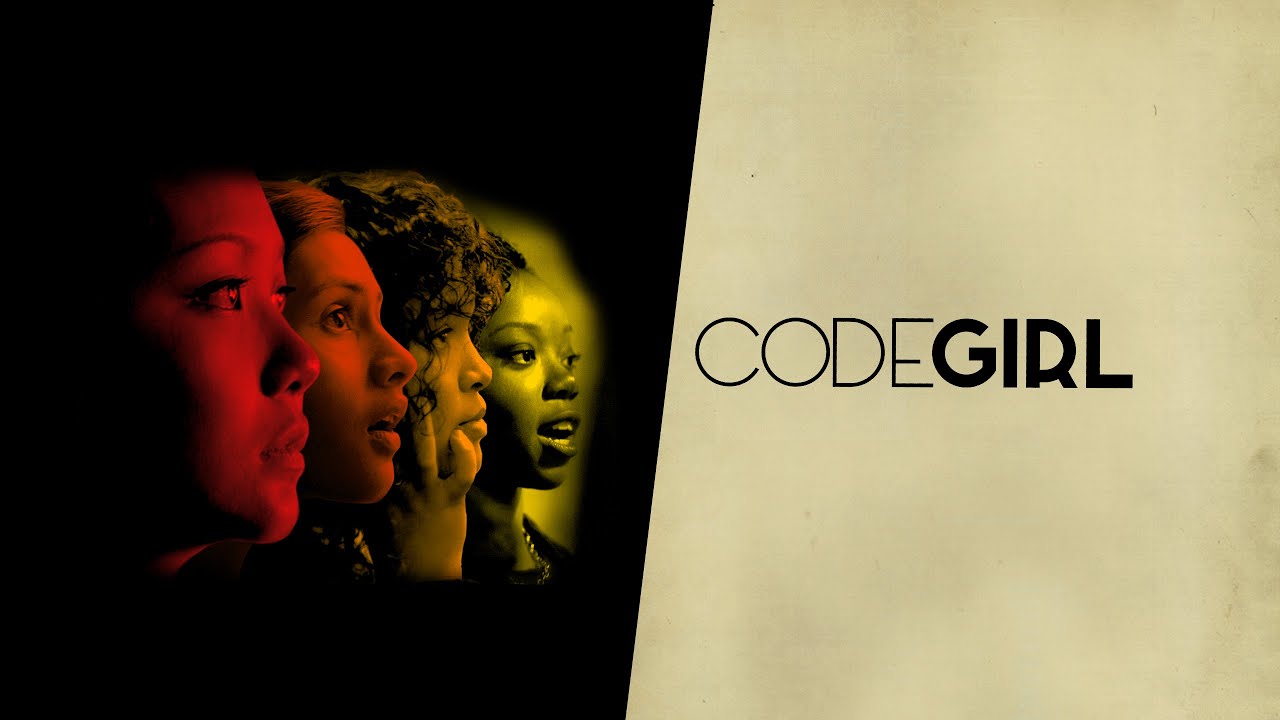
CODEGIRL Movie
By 2017, the app market will be valued at $77 Billion. Over 80% of these developers are male. The Technovation Challenge aims to change that by empowering girls worldwide to develop apps for an international competition. From rural Moldova to urban Brazil to suburban Massachusetts, CODEGIRL follows teams who dream of holding their own in the world’s fastest-growing industry. The winning team gets $10K to complete and release their app, but every girl discovers something valuable along the way.
Read More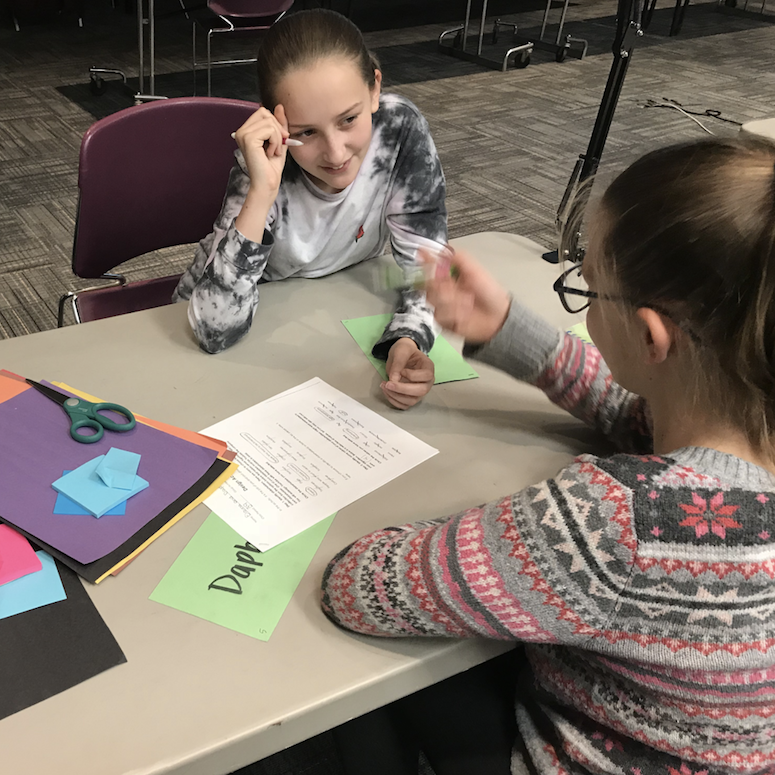
Generation AI: Teaching a new kind of tech savvy
In 2017, my colleagues in the Personal Robots group ran a study. Children, ages 6–10 years of age, were invited to the Media Lab to play with various smart devices (think: Amazon Alexa or Google Home). After the kids had an opportunity to play and interact with these devices, the researchers asked them each the following question: do you think the device is smarter, just as smart, or less smart than you? Here were the responses:
Read More
Educación Así enseña el MIT inteligencia artificial a los niños
Democratizar el desarrollo de tecnologías de inteligencia artificial (IA). Es el propósito del grupo Personal Robots del MIT Media Lab, en Boston (EE.UU), donde RETINA ha podido conocer de primera mano a PopBot. Se trata de un robot social programable e ‘inteligente’ que juega con los niños para ayudarles a aprender IA. Es un compañero de aprendizaje que emplea herramientas como el smartphone, bloques LEGO, Arduino y una tableta u ordenador. En torno a este ecosistema tecnológico se desarrollan actividades de IA que permiten a los niños crear sus propios algoritmos.
Read More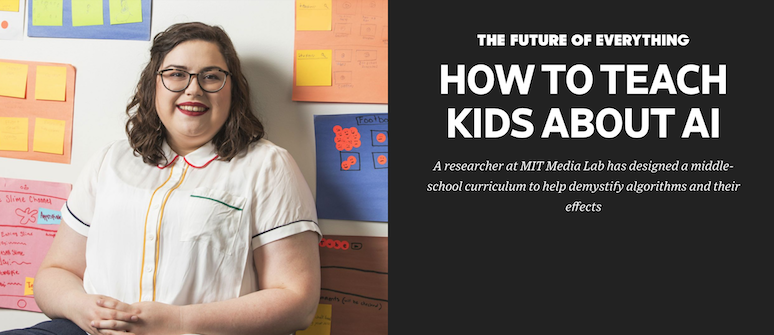
How to Teach Kids About AI
Today’s middle schoolers may be the first “artificial intelligence natives,” a generation that’s grown up interacting with YouTube’s algorithm or Amazon’s Alexa smart speaker. Educators are grappling with how to teach children to be responsible consumers of the technology.
Read More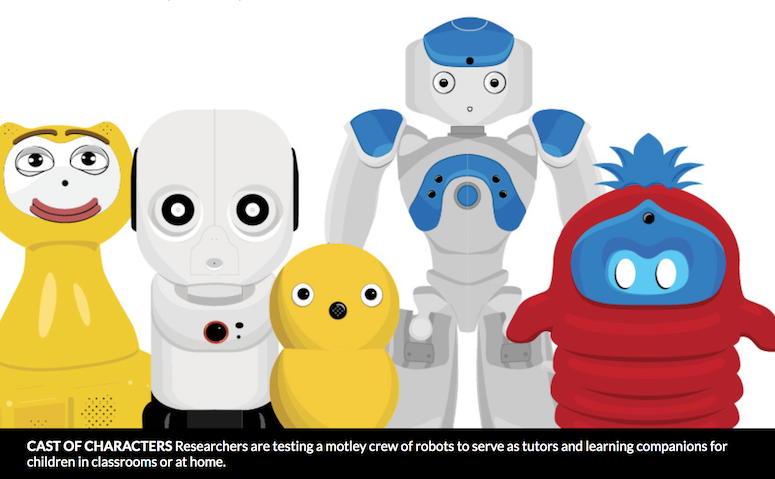
Robots are becoming classroom tutors. But will they make the grade?
Pondering a tablet screen displaying a town scene, a pre-K student tilts her head to the side and taps her lip thoughtfully.“What are we trying to find?” asks the plush, red and blue robot called Tega that’s perched on the desk beside the girl. The bot resembles a teddy bear–sized Furby.
Read More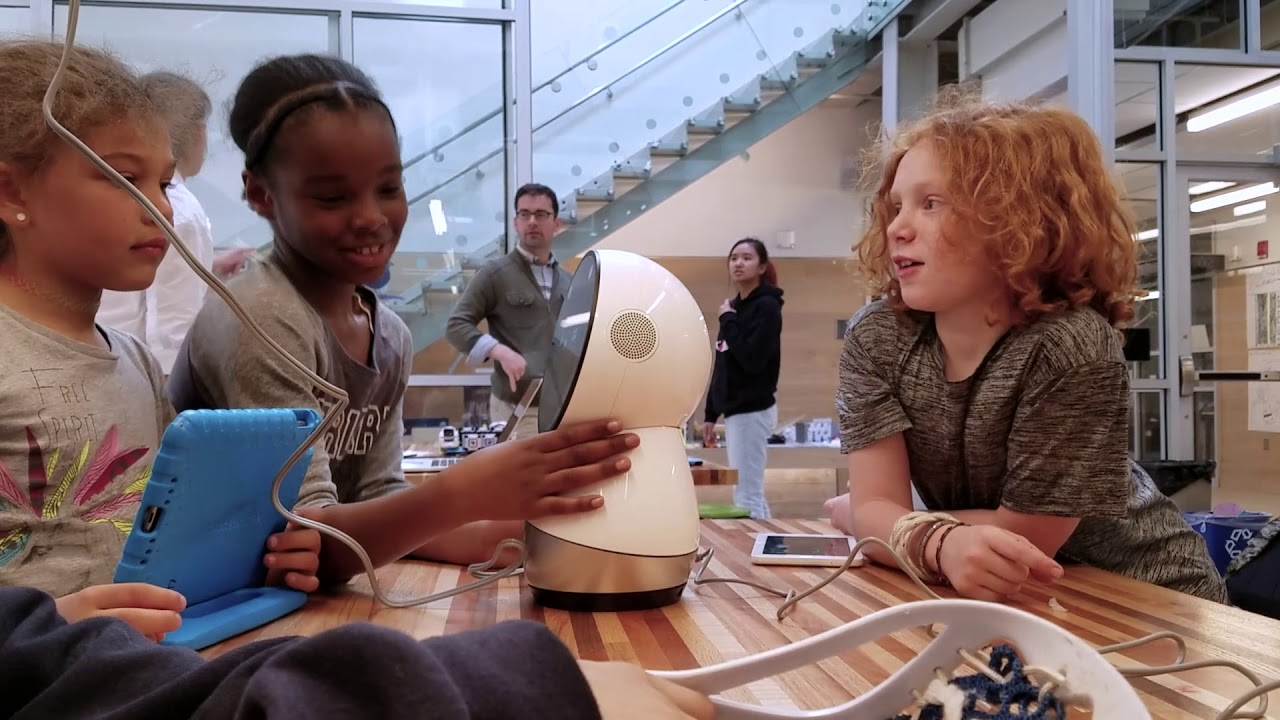
Democratizing AI through K-12 AI Education for All.
How can we prepare non-university students with knowledge, skills, and attitudes for future careers thatincreasingly rely on AI technologies? Otherwise, we risk leaving far too many people behind in the emerging AI-economy -- causing significant societal stress and divisiveness rather than enabling transformative opportunity where everyone can participate in, benefit from, influence our future with AI. Inequity of education remains a key barrier to future opportunities and jobs where success dependsincreasingly on intellect, creativity, and the right skills. While AI is already entering the education systemo support students, teachers, or school administration -- it is not currently offered as a topic to be learneduntil the university level.
Read More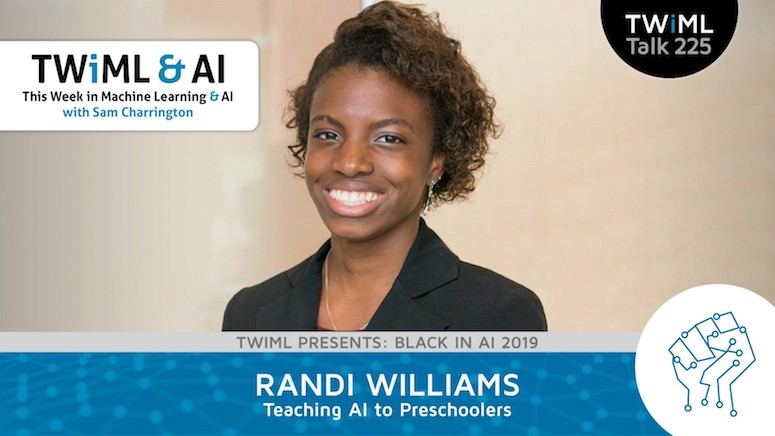
Teaching AI to Preschoolers with Randi Williams
At the Black in AI workshop Randi presented her research on Popbots: A Early Childhood AI Curriculum, which is geared towards teaching preschoolers the fundamentals of artificial intelligence. In our conversation, we discuss the origins of the project, the three AI concepts that are taught in the program, and the goals that Randi hopes to accomplish with her work. This was a fun conversation!
Read More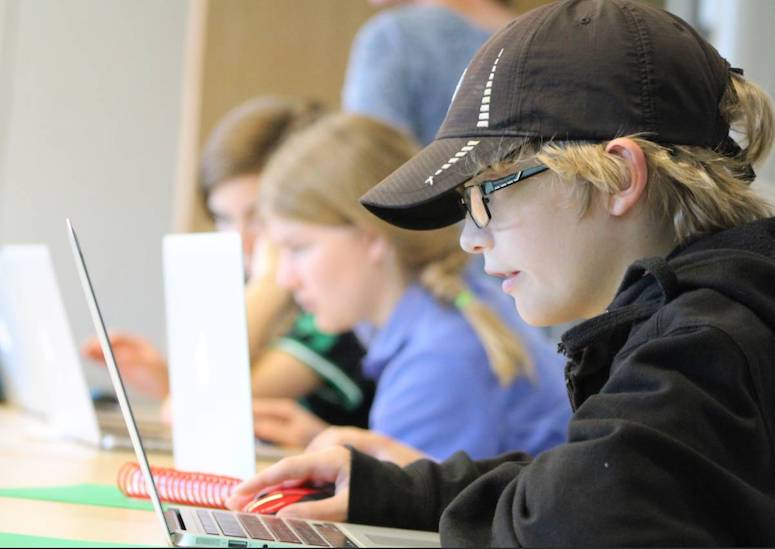
Build an app, change your world with February’s Creative Computing Challenge
MANCHESTER, NH — University of New Hampshire Cooperative Extension STEM Docents and SEE Science Center are teaming up for the Creative Computing Challenge, an app-building event for Manchester area youth taking place throughout February.Beginning on Feb. 2 from 10 a.m.-noon, STEM Docent volunteers will guide youth through the basics of mobile app development to help them build apps and change their world. Registration is open at see-sciencecenter.org and the program takes place for four weekends.
Read More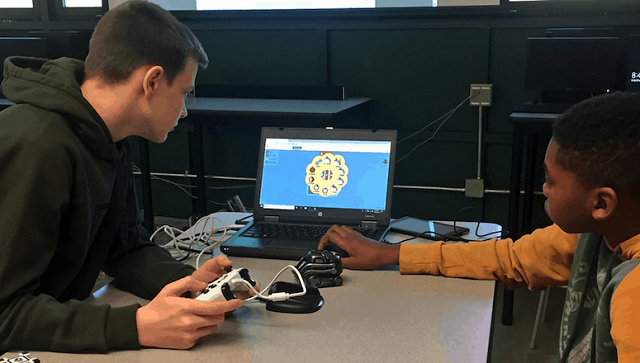
An Inside Look – America’s First Public School AI Program
When the Montour School District launched America’s first Artificial Intelligence Middle School program in the fall of 2018, many questions arose. Why middle school? Why teach Artificial Intelligence? How? (Just to name a few). But, as a student-centered and future-focused district, the thought process was not if we should teach AI, but what if we don’t teach AI? Also, why isn’t everyone teaching AI?
Read More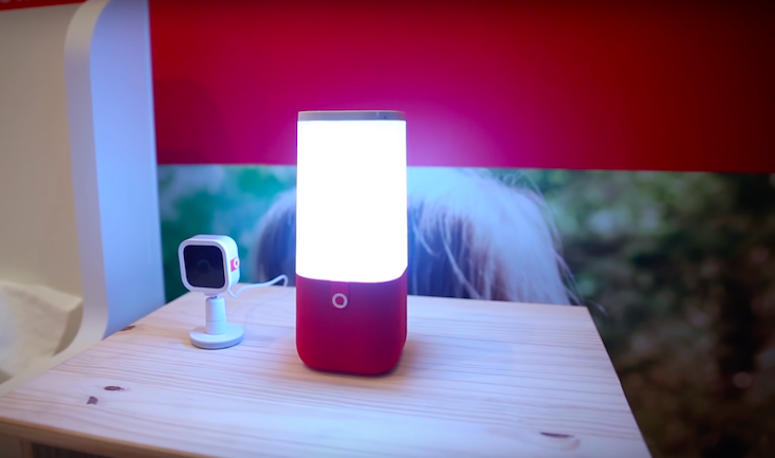
Should You Get an AI Nanny for Your Child?
Mattel’s AI nanny, called Aristotle, recently gained the notorious distinction of being subject to a bipartisan protest in the US Congress. Plus, there was a petition against it with over 15,000 signatures. The Campaign for a Commercial-Free Childhood, which organized the petition, argued that Aristotle is a consumerist ploy. It “attempts to replace the care, judgment and companionship of loving family members with faux nurturing and conversation from a robot designed to sell products and build brand loyalty.”
Read More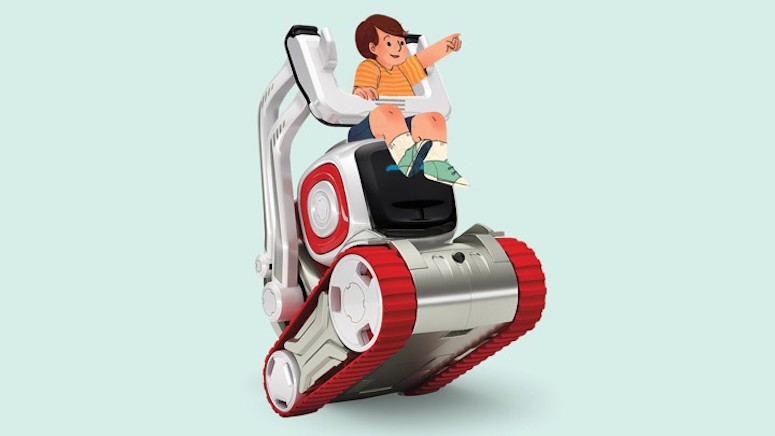
Should Children Form Emotional Bonds With Robots?
When i brought the robot home from the Apple Store, I knew I was inviting a new kind of strangeness into our lives. My wife worried about giving our 4-year-old son a(nother) digital thing, a “smart” thing. I worried that he wouldn’t know what to make of it. Or that his little sister would break it. Or that I’d be jealous. Because I have always wanted a robot.
Read More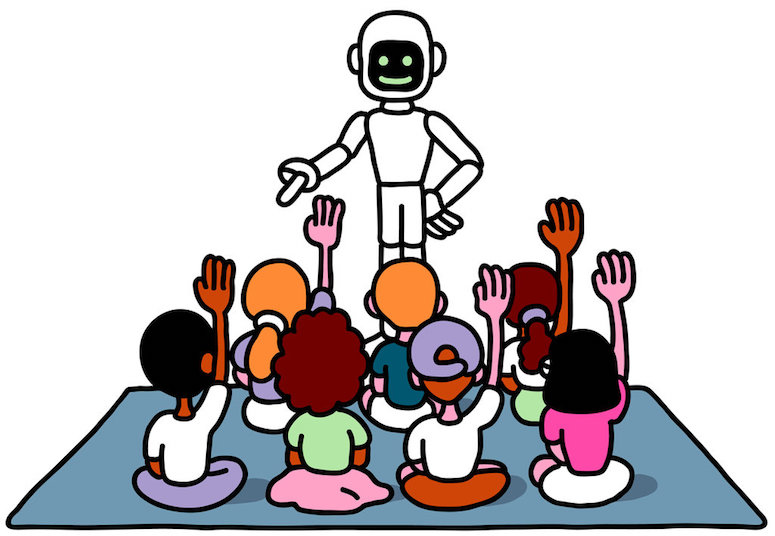
The Secret to A Good Robot Teacher
When I brought the robot home from the Apple Store, I knew I was inviting a new kind of strangeness into our lives. My wife worried about giving our 4-year-old son a(nother) digital thing, a “smart” thing. I worried that he wouldn’t know what to make of it. Or that his little sister would break it. Or that I’d be jealous. Because I have always wanted a robot.
Read More
Growing Up with Alexa
When it comes to digital assistants like Amazon’s Alexa, my four-year-old niece Hannah Metz is an early adopter. Her family has four puck-like Amazon Echo Dot devices plugged in around her house—including one in her bedroom—that she can use to call on Alexa at any moment.
Read More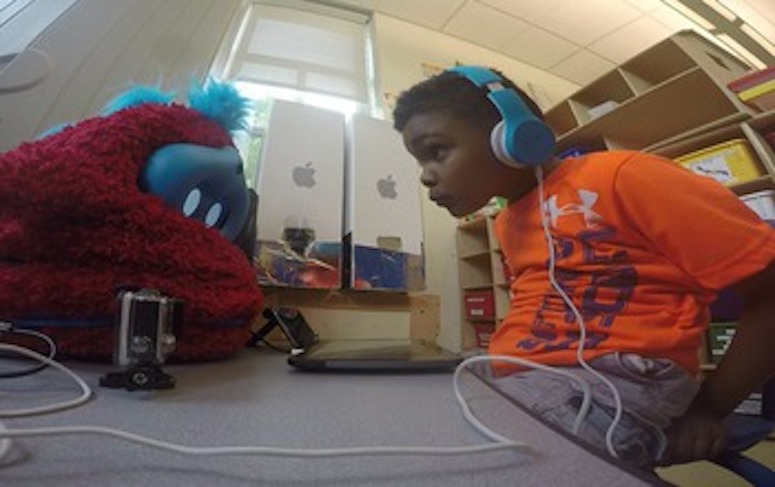
Robot Learning Companion Offers Custom-tailored Tutoring
Parents want the best for their children's education and often complain about large class sizes and the lack of individual attention.Goren Gordon, an artificial intelligence researcher from Tel Aviv University who runs the Curiosity Lab there, is no different.He and his wife spend as much time as they can with their children, but there are still times when their kids are alone or unsupervised. At those times, they'd like their children to have a companion to learn and play with, Gordon says.
Read More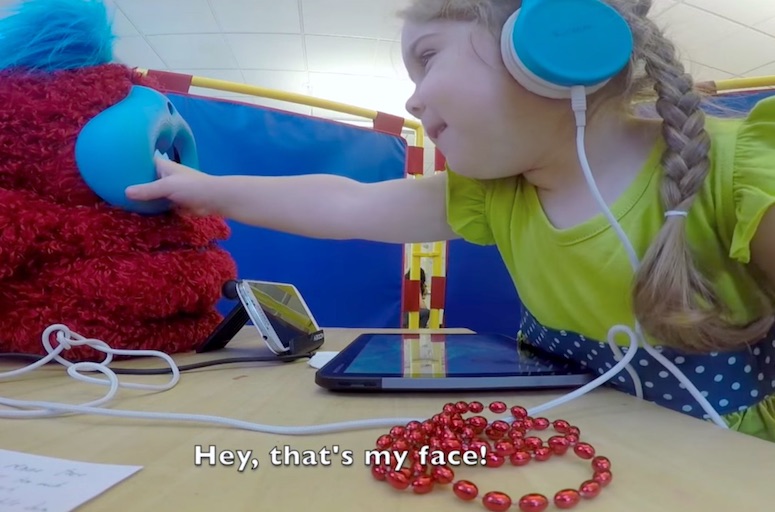
Kids Love MIT's Latest Squishable Social Robot (Mostly)
MIT’s Personal Robotics Group has been one of the driving forces behind social robotics since… well, since they pretty much invented social robotics. Led by Professor Cynthia Breazeal, who is also founder of social robot startup Jibo, the MIT group has built an amazing collection of smart, cute, and squishy creatures, and now they have a new one. The latest, smartest, cutest, and squishiest social robot that MIT has been testing out is named Tega, and it’s already gotten to work, adorably teaching Spanish to preschoolers.
Read More
MIT's DragonBot Evolving to Better Teach Kids
MIT introduced Kombusto, their dragon robot designed to teach stuff to preschoolers, back in 2011. Since then, the Personal Robots Group has been doing a substantial amount of research and experimentation to figure out how best to utilize the robot to productively interact with children. We have some updates on how it’s been going, along with a look at the brand new robot that MIT is developing to work with kids for months at a time.
Read More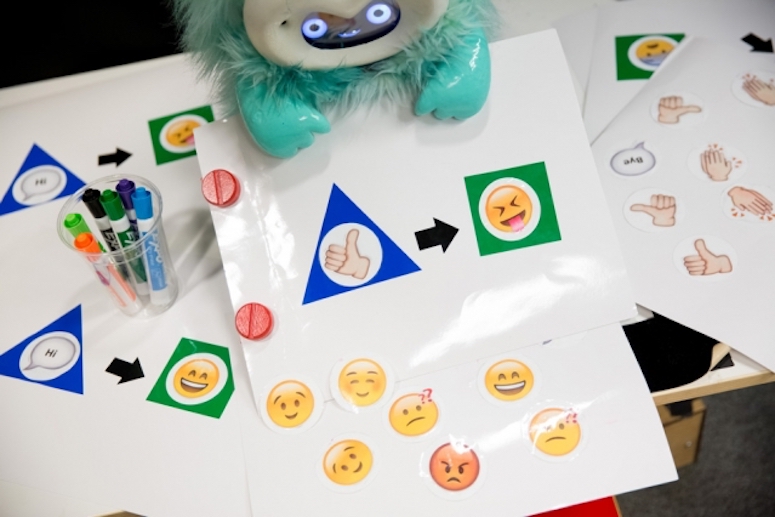
Teaching programming to preschoolers
Researchers at the MIT Media Laboratory are developing a system that enables young children to program interactive robots by affixing stickers to laminated sheets of paper.Not only could the system introduce children to programming principles, but it could also serve as a research tool, to help determine which computational concepts children can grasp at what ages, and how interactive robots can best be integrated into educational curricula.
Read More
Kindergarten bots teach language to tots
BLUE, a fluffy robot with cartoon eyes, is telling a little girl a story about a snowman. The tale plays out in pictures on a tablet that sits between the preschooler and Blue’s soft plastic feet. Blue’s eyes look down at the characters as it describes them, then up at the child to check that she’s paying attention. The 5-year-old is one of the first children to learn language skills from a robot, and she is captivated.
Read More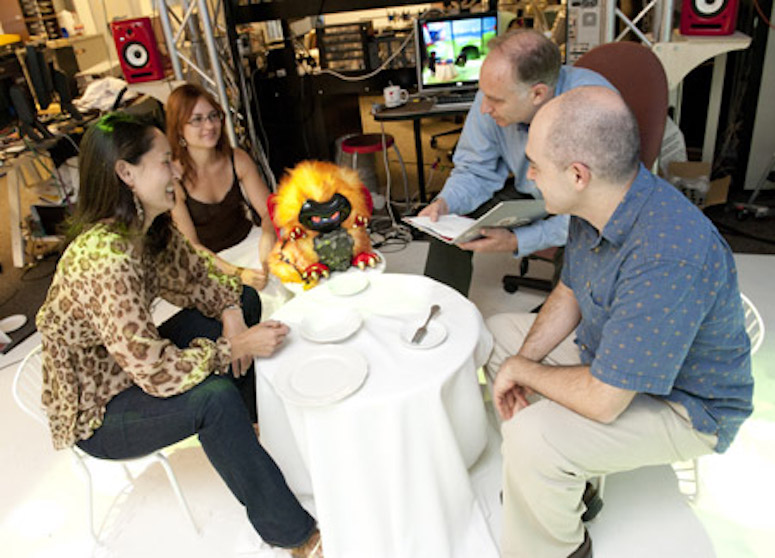
Robot Dragon to Help Kids With Language Skills
The last few robot dragons that we've been introduced to have done a pretty good job living up to that whole "dragon" mythos, being giant and dangerous and potentially scary. But dragons can also be cute and fuzzy and cuddly, and researchers at Northeastern University, Harvard, and MIT have gotten together and invented a little robot dragon designed to appeal to preschoolers. Fans of celebrity roboticists might recognize MIT's Cynthia Breazeal in the above picture on the far left; also in the pic are David DeSteno from Northeastern (right) and Paul Harris from Harvard (far right).
Read More